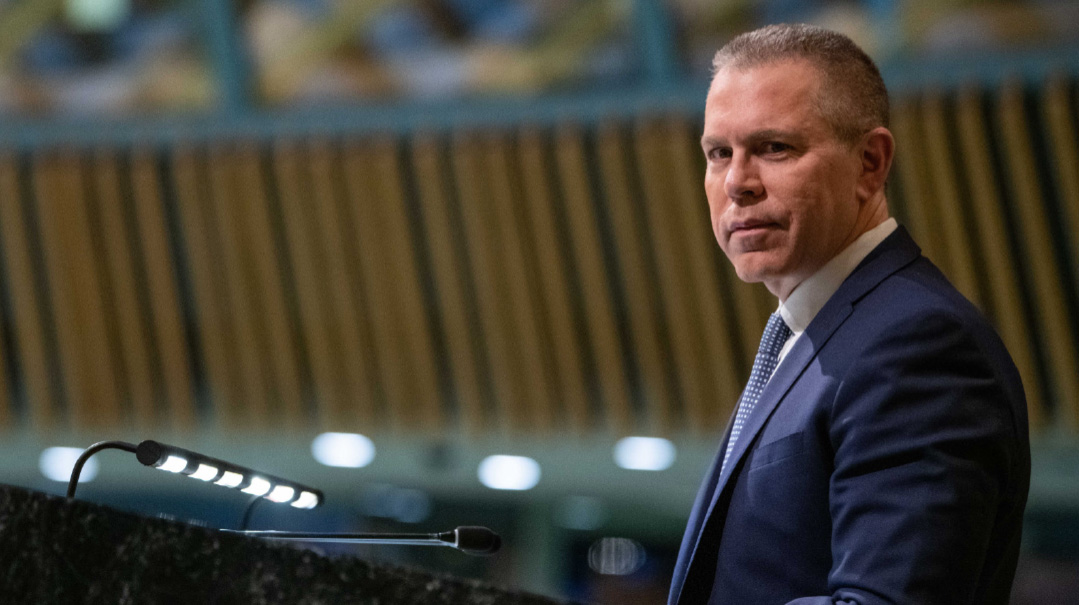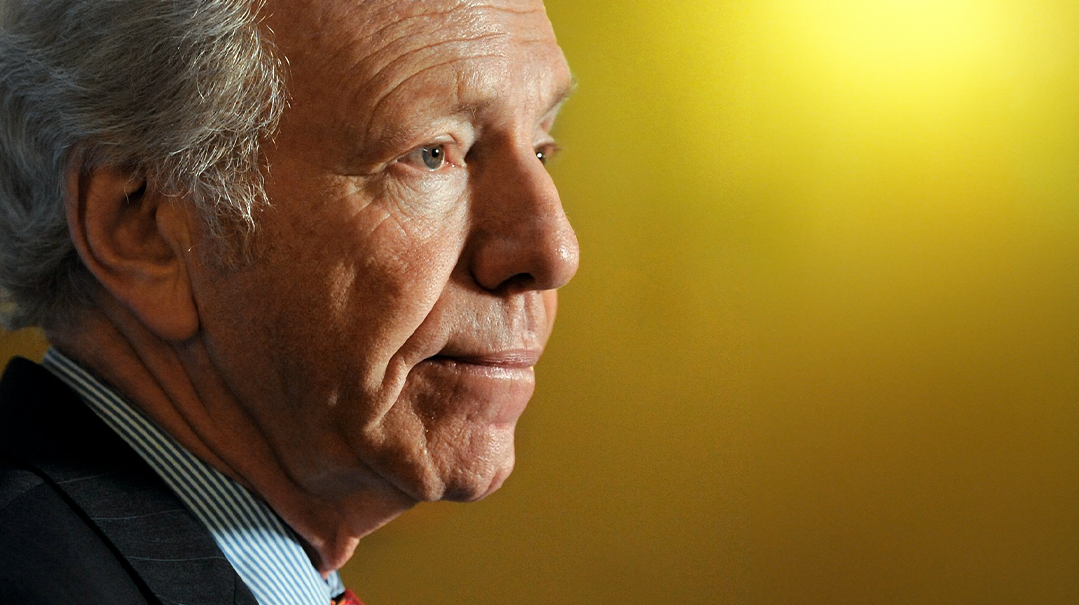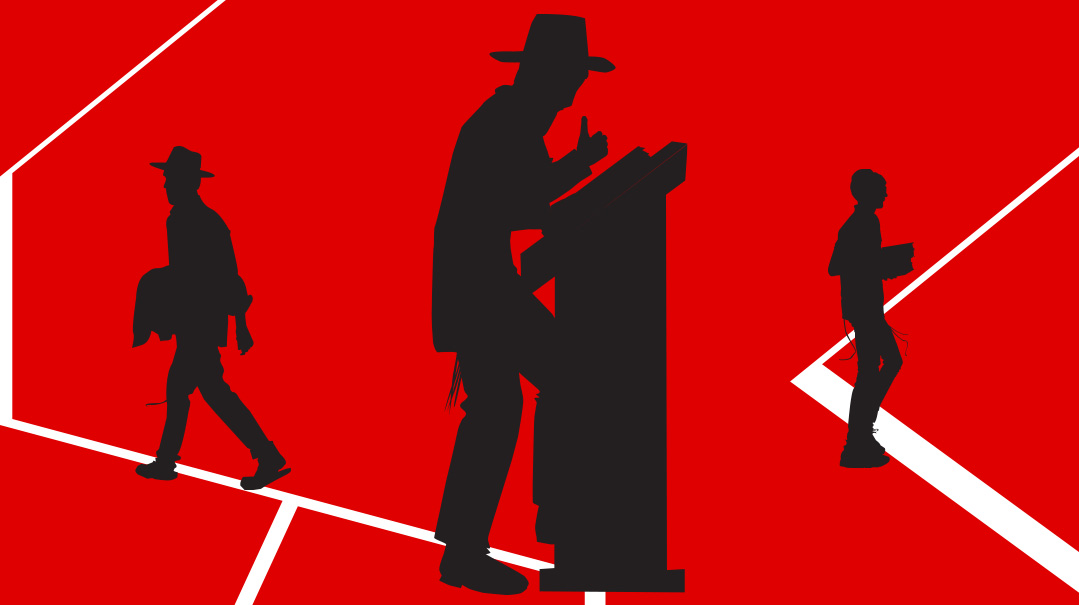Reform Roadblock

How Bibi's judicial reform was stopped in its tracks
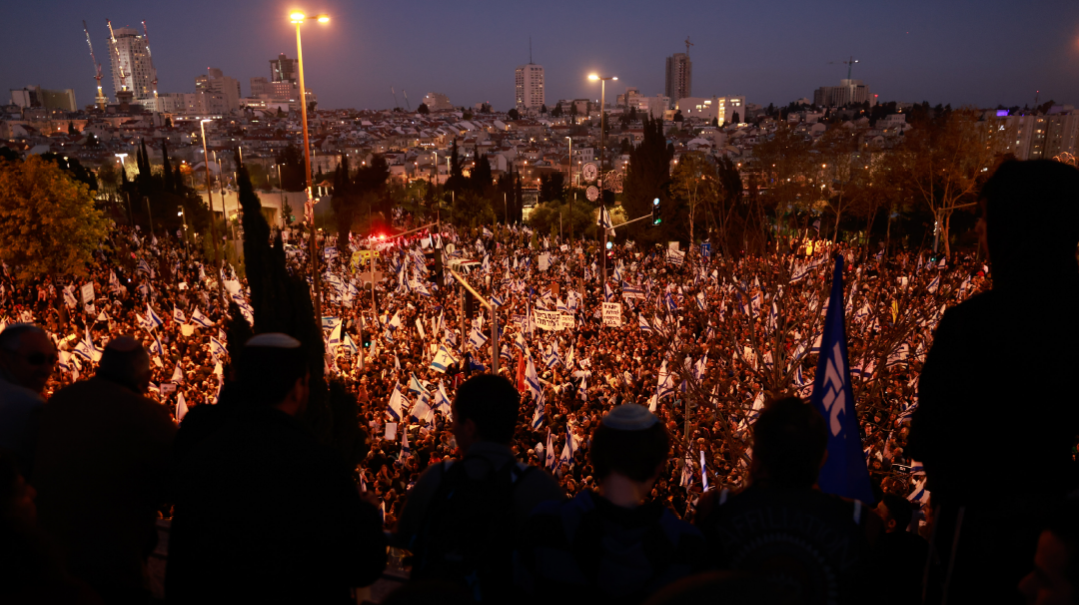
Never in the long history of Israeli demonstrations have protests proved so potent.
Months after the right under Netanyahu swept back into power, seemingly relegating the left to political oblivion, the opposition has achieved the impossible: it has halted – and possibly ended – the push for reform of the justice system which was the government’s flagship policy.
Large, sustained protests were the main tool, with major highways blocked by crowds chanting “DE-MO-KRAT-YAH.” Opponents of the reform upped the ante, with tech investors threatening to divest from the country and large numbers of reservists in critical IDF units warning that they wouldn’t serve.
The country descended into chaos when union bosses closed Ben Gurion, shut down major retail chains, and brought large parts of the economy to a standstill.
With Netanyahu under international pressure to abort the reforms and the country’s media, academic and economic establishments united in vehement opposition, and Bibi’s coalition threatening to break apart, the government’s resolve cracked and the reforms were put on hold.
No one knows how this crisis will play out, or whether Netanyahu’s government can recover from such a blow.
But as Israel’s streets seethe and the political system tries to find a way forward, the turmoil raises questions about the past.
Where did the coalition go wrong? How did such experienced politicians preside over such a circus? And what does the success of the protest movement say about Israel as a society?
If you could go back in time to the launch of the judicial reforms, what would you have done differently?
What miscalculation in strategy, communication, or timing is the key factor in Israel’s self-made disaster?
And what do the unprecedented scenes in the street show about Israel as a society?
The Hesitant Right
By Gedalia Guttentag
W
hatever you think of the proposed justice system reforms, the Israeli political left’s decision to close down the economy, delegitimize the government in the international arena, and threaten to disrupt the IDF’s functioning by encouraging reservists to stay home, is a dangerous, irresponsible step — one that no other protest group has ever taken.
At the height of the Covid crisis three years ago, when chareidi schools reopened, even as the main school systems stayed close, the secular media’s op-ed pages rained fire and brimstone on the chareidi “state within a state.”
That was exaggerated, but what these same media outlets are now encouraging truly justifies that term.
The fact that this is now taking place demonstrates something about Israeli society: that there’s some truth to the old right-wing cliché — the right wins elections but the left continues to rule. The commanding heights of Israeli society are still dominated by the left.
The visceral nature of the protests proves something else: that the demonstrations aren’t about the finer points of parliamentary democracy, but about identity.
With a right-wing-religious coalition in power, the left’s response is a proxy for the question about which tribe rules. Is Israel traditional or liberal? Are we Medinat Yerushalayim or Medinat Tel Aviv?
In that context, the fact that the reforms were fronted by two previously low-profile politicians — Yariv Levin and Simcha Rothman — is significant.
Attention has focused on the role that Bibi’s absence from the PR effort played in the fiasco. A charismatic politician can indeed sell a revolutionary idea to the public, as happened with Boris Johnson’s late adoption of the Brexit cause. In that reading, Bibi’s absence was key.
But that analysis may be wrong: Netanyahu’s absence was partially connected to the attorney general’s instruction to recuse himself — but only partially. Had Netanyahu been fully on board with the program, he wouldn’t have waited until 15 years after taking power to advocate reform. Equally, he would have taken far more credit for the effort once underway, whatever the AG said.
In the same vein, Likud heavyweights like Nir Barkat failed to sell the reforms from day one.
Because for both Bibi and Likud’s centrists, who tend toward liberalism and aren’t fully comfortable with the coalition’s conservative tilt, the reforms are outside their comfort zone. Some — like Yuli Edelstein — went on record as saying so; others kept shtum, but equally wouldn’t actively sell it.
All of which means that in political hindsight, the effort was doomed to fail, because there simply weren’t the numbers to see through a systemic change, and only a far-more modest reform effort could have succeeded.
Where all this goes is the province of prophecy, but what’s clear is that Israel’s latest political crisis boils down to two dynamics: The left is unafraid to flex its considerable muscle but can’t win at the ballot box, and the right has the votes but is of two minds about what to do with them.
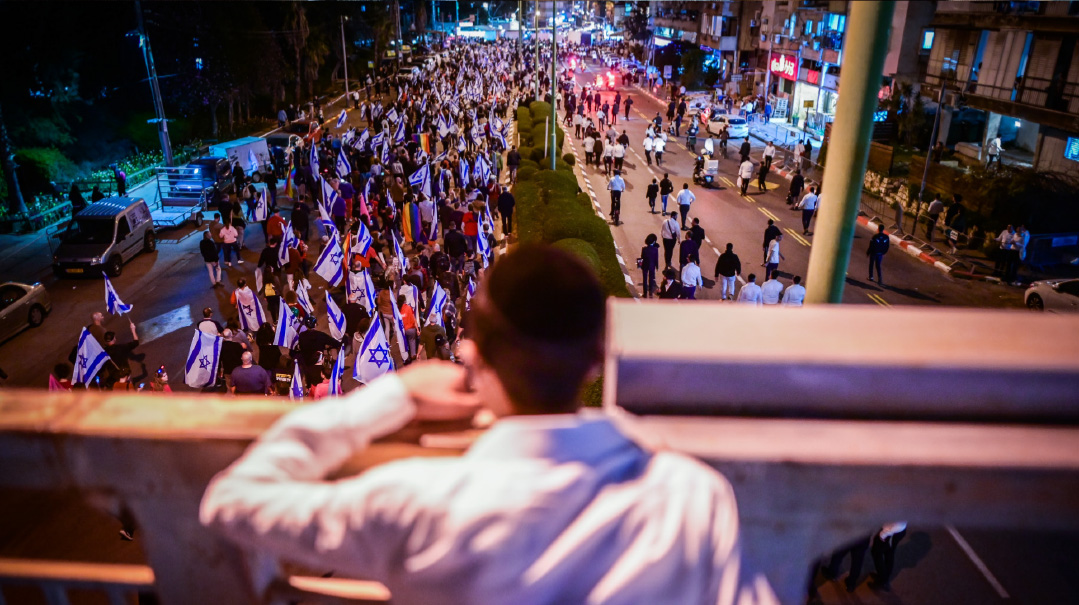
Religious Dimension: Secular demonstrators fear that a coalition including 32 Orthodox Jews plans to control their lives
Power Politics and People Power
By Binyamin Rose
T
he 100 days of grace normally allotted to a new government doesn’t apply anymore in an era of extreme polarization, when election losers refuse to admit defeat or cede power.
It certainly never applied to Binyamin Netanyahu, who is not exactly a new face deserving of grace, and it certainly didn’t apply to his current coalition alignment of chareidim and national Zionists, whose way of life and beliefs are constantly mocked and belittled by political and media opponents.
Exactly four months ago in the Rose Report, just as the new government was about to be formed, I wrote the following at the end of my column: “The chorus of critics might have been defeated at the polls, but they haven’t stopped rehearsing their lines, and they will get louder with each passing day. We need to steel ourselves.”
I wish I had been wrong. But I wasn’t.
The government’s only chance was to pass its judicial reform agenda in one fell swoop.
I disagree with the critics who say the government got caught speeding without proper due diligence or deliberation.
The Kohelet Forum think tank that formulated much of the plan over a period of years employs some of the best and brightest minds in Israel. They keenly understand the flaws of a judiciary with unlimited power and devised a plan to upend that. There were no surprises and no secrets.
The opposition’s demand to halt the legislation in return for talks is straight out of the Palestinian Authority playbook. You give me what I want, and then I’ll demand more. Had the government frozen the legislation, they would have lost all of their political leverage. The only way to pressure the opposition to talk was to go full steam ahead.
The government’s major mistake is that it underestimated the opposition. They failed to leverage their 64-seat Knesset majority — voted into office by the majority — to pass the reform package in a 30-day legislative blitz, before the so-called “civil society” groups leading the demonstrations could build momentum to the dangerous levels we have seen, blocking major highways, grounding flights, and grinding the economy to a halt.
As the opposition mounted, they failed additionally to provide any sophisticated answers to the scare tactics employed by the opposition that judicial reforms would lead to an economic collapse, capital flight, and reduced IDF deterrence.
A sophisticated and worldly prime minister such as Binyamin Netanyahu could have provided the answers, but he allowed himself to be stifled and intimidated by the attorney general, who ruled it would be a conflict of interest for a man on trial to lead judicial reforms.
Netanyahu should have defied her. An elected prime minister — and the longest-serving one in Israel’s history — isn’t a kindergarten student who needs to raise his hand and ask the teacher to be excused from class.
In the long run, the battle has just begun.
The left-right divide that has paralyzed and polarized American politics has now been imported to Israel. Worse is that here, there is a religious dimension to the conflict that is no longer dominant in the American discourse.
This is the real fear, and this is where dialogue can work. The march on Bnei Brak last week unmasked one of the chief fears of the demonstrators — that judicial reforms headed by a coalition that includes 32 Orthodox Jews are just a first step toward controlling their lives. The scenes of chareidim greeting the demonstrators and disarming them with ahavas chinam in addition to cholent and beverages were well-publicized here, even if they didn’t dominate the news.
That’s the momentum we need to build on. Rome wasn’t built in a day, and the Beis Hamikdash hasn’t been rebuilt in almost 2,000 years, but this is no time to give up.
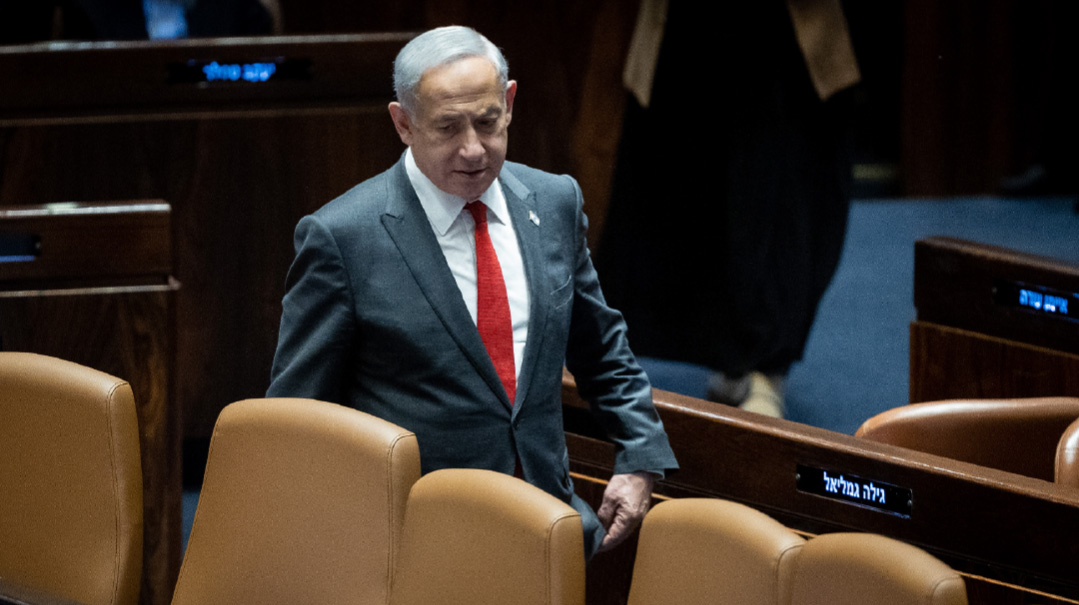
Failure of the Great Campaigner
By Avi Blum, Esq.
Binyamin Netanyahu has always been billed the greatest campaigner of all time in Israeli politics, a man who knows how to read the street, convey the right message — and cut his losses in time, like during the 2011 protests, when hundreds of thousands of Israelis took to the streets.
The question of all questions on today’s Israeli political scene is: How did Netanyahu’s message machine break down so badly, after his knockout win in the elections against the odds, with the brilliant campaign that he ran?
Inside the Likud, there are those who will point to a series of mistakes Netanyahu and Levin made along the way, leading to this resounding failure just three months after their victory. Some people called the foolishness “Rothmanism and Levinism,” pointing to the two figures who led the reforms: Justice Minister Yariv Levin and Constitution Committee Chairman Simcha Rothman.
Levin forgot the age-old Jewish credo and began this war with declarations instead of strategies. He gave a press conference at which he laid out all his cards from the start, detailing every stage of the battle plan, thus reviving the dejected Left after their losses in the last elections.
Netanyahu, instead of leading, found himself perhaps for the first time in his career being led. Attorney General Gali Baharav-Miara, who was appointed by his nemesis, former justice minister Gideon Saar, handcuffed him — figuratively — and banned him from engaging in the judicial reform. Netanyahu had to leave Rothman and Levin at the wheel, and they launched the campaign with “foaming mouths,” as those around Netanyahu put it. They became the greatest sources of encouragement for the protest demonstrations.
Netanyahu, taken aback by the scope and intensity of the protests, which extended beyond Israel’s borders and threatened to compromise the economy and the army reserve system, did not hasten to cut his losses, as he did in the past. In conversation with chareidi sources this week, he surmised that the protests to date had to have cost more than NIS 150 million — the funding for which had poured into a protest wave the likes of which Israel had never seen. He estimated that tens of millions were coming from foreign foundations, high-tech sources, foreign governments — and anyone else whom the paranoid Netanyahu had been afraid of all these years.
Bibi’s greatest mistake was that in response to Defense Minister Yoav Gallant’s declaration that the judicial reform was endangering state security, he instructed that Gallant be fired. Bibi had conveyed different messages to Gallant on the eve of his trip to London, but ultimately capitulated to Levin and his own son, Yair, and instructed that the minister be given the boot. Thus, when Netanyahu tried to exercise leadership within the camp, it boomeranged and inflamed the protests beyond a temperature that the government was able to handle.
The line on Netanyahu in the past has been that he negotiates with sellers to buy damaged merchandise at an extortionate price, but somehow manages to pass it off to voters as a crafty deal. This time, it seems, his hasbarah has been lacking.
“It’s happening primarily because he does not have advisors besides Yariv Levin and his son Yair,” remarked a chareidi MK.
Three months after the great victory that redeemed the right from bondage to freedom, we’ve gotten a government that is one big lump of bitter herbs.
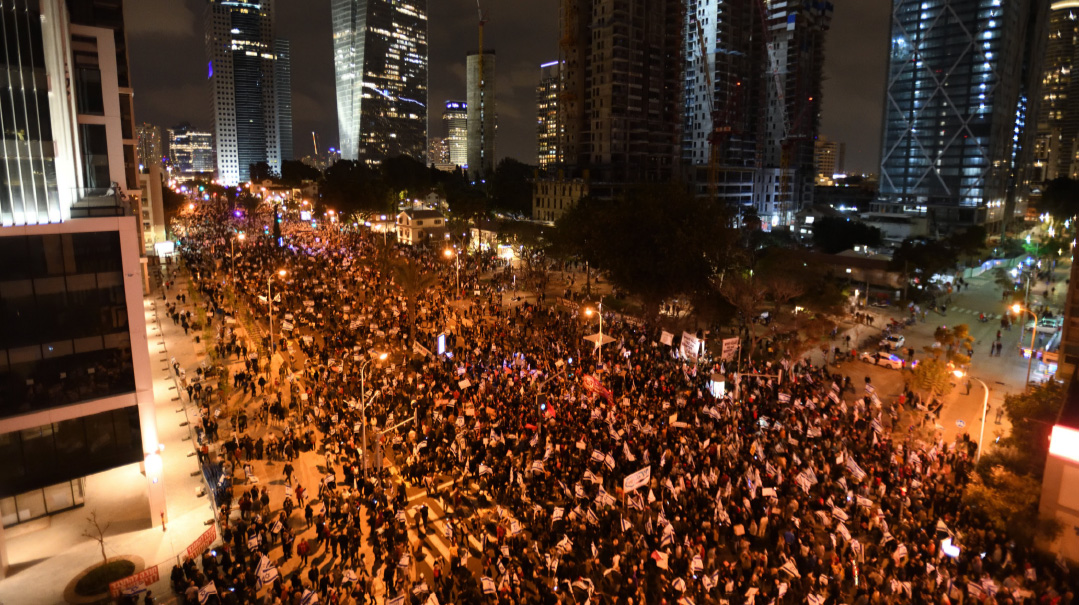
The End of the Beginning
By Professor Eugene Kontorovich
IN
recent memory, only three things besides Yom Kippur have closed down Ben-Gurion Airport: Hamas rockets, Covid, and now, supporters of the High Court’s absolute power.
The reforms failed to be enacted this Knesset session not because of bad tactics or poor marketing, but because it is actually hard to take power from an ensconced elite that controls major state institutions.
The main mistake of the government was in underestimating how right they are: The Court has unchecked power, and commands obedience from the senior bureaucratic officials they empower. The government expected efforts at compromise, as is common with Knesset legislation. But why should the “Court Party” compromise if it holds all the cards? Additionally, no one anticipated the extent to which the left would harm the economy and security of the country to preserve their undemocratic power, because the right was not cynical enough.
At the same time, these protests are to a large extent not about the reform. They are cut-and-paste imports from the anti-Trump resistance — the same slogans, even the same “Handmaid” costumes, despite abortion not being a political issue here. So I think they were going to launch this campaign no matter what, and just looked for a pretext.
To be clear, this is not the first attempt at reform. Far smaller efforts that have been attempted in the past decade have failed; this attempt at least attracted national attention to the power of the Court.
Indeed, I think the opposition has proved the absolute power of the High Court: one does not shut down Ben-Gurion Airport over two seats on a normal Court. Even Roe v. Wade and Dobbs did not generate such protests — because those decisions could all be changed over time through the democratic process. Here, what is at stake is an institution of absolute and unaccountable power that seeks to permanently insulate itself from democratic processes.
This is not the end of the battle. The anti-democratic power of the Court and the contempt of much of the opposition for democracy have been laid bare. Supporters of reform still have one advantage — numbers. They should not despair, nor stop voting in elections. They should regroup, rethink, and renew their effort —to preserve Israel as a Jewish and democratic state. The alternative is that it becomes an un-Jewish and undemocratic state.
Professor Eugene Kontorovich is the director of Antonin Scalia Law School’s Center for the Middle East and International Law at George Mason University and the head of the International Law Department at the Kohelet Policy Forum, a Jerusalem-based think tank.
(Originally featured in Mishpacha, Issue 955)
Oops! We could not locate your form.



